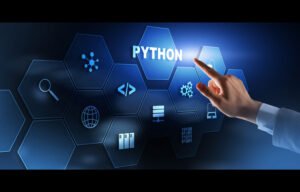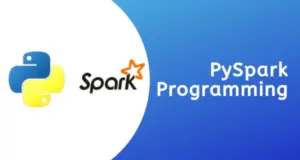A career as an AI engineer is not an exception, with job postings involving AI having doubled over the previous two years. However, what are the competencies of an AI engineer, and what should you study to become one?
We will provide you with a summary of the most important AI engineer skills in this article.
Gaining expertise in AI engineering is essential for putting machine learning systems into operation. So, please continue reading if that’s of interest to you! If you’re looking to learn AI from scratch, check out our Artificial intelligence online course.
What is an AI Engineer?
AI-based system design, development, and maintenance fall within the purview of AI engineers. They develop intelligent apps that can learn from data and make judgments by utilising their expertise in machine learning, programming, data analytics, and other technologies.
Technical Skills of an AI Engineer
Let’s examine the technical abilities that most AI engineers have in order to gain a better understanding of their role:
1. Programming Languages
It should go without saying that proficiency in programming languages is a must for an AI engineer.
The following are a few languages that are frequently used in AI development:
- Python
- Java
- R
- C++
- JavaScript
Python
Python’s large libraries for AI and machine learning, coupled with its simple syntax, make it a particularly popular language. Working with data, creating models, and creating algorithms all require an understanding of these languages.
Python programmers frequently utilize libraries like TensorFlow, Keras, and PyTorch for AI development. Image identification, natural language processing, and predictive analytics are some useful applications.
R
AI also makes extensive use of the R language, which is mainly used for statistical analysis and graphic depiction.
The R package ‘caret’ facilitates predictive modelling, and ‘e1071’ makes machine learning model creation easier. R is used in AI initiatives in the fields of social media analytics, finance, healthcare, and science.
Java
Another well-liked option for AI development is Java, mostly because of its strong user interaction features, readability, and simplicity.
It is appropriate for chatbot creation due to its robust memory management and the availability of many top-notch machine-learning packages, like Apache Open NLP and Stanford Library NLP.
Use cases for chatbots, website recommendation engines, and financial fraud detection are numerous.
C++
Machine learning and neural network computing can benefit from the low processing cost of C++, which enables the execution of high-level applications.
C++ libraries for machine learning include Shark and mlpack. Robotics, gaming, and computer vision tasks are examples of AI application cases.
2.Data modelling & engineering
AI engineers must possess a thorough understanding of data modelling and engineering since data is the basis of AI.
They ought to understand how to gather, purify, and prepare data so that it is ready for analysis. To query and manage huge datasets, one must be proficient in both SQL and NoSQL databases.
AI projects also frequently leverage tools like AWS S3, Hadoop, and Apache Spark for data processing.
3.Big Data Analysis
Large data sets should be analysed by AI engineers in order to derive insightful knowledge from them. This entails querying and manipulating huge databases using big data tools like SparkSQL, Apache Flink, and Google Cloud Platform.
4.Machine learning models
AI developers need to be familiar with machine learning models and algorithms.
This includes being aware of deep learning algorithms like recurrent neural networks (RNNs) and convolutional neural networks (CNNs), as well as supervised and unsupervised learning approaches.
Additionally, AI developers should be able to assess these models’ performance using metrics such as
- Accuracy
- Precision
- Recall
- Root-mean-square deviation (RMSE),
- Mean absolute error (MAE)
- F1 score
5.AI and ML services
Cloud-based AI and machine learning technologies provided by well-known providers like AWS, Azure, and Google Cloud Platform should also be familiar to AI engineers. Without requiring a lot of code, these services offer pre-built models, APIs, and tools for creating intelligent apps.
6.AI Deployment & DevOps
Working with DevOps teams to guarantee seamless integration and deployment is a necessary part of deploying AI applications.
AI engineers should be proficient with containerization, configuration management, and deployment orchestration using platforms like Docker and Kubernetes.
They are also in charge of keeping an eye on and preserving the functionality of AI systems after they have been deployed.
7.AI security
Any AI engineer must comprehend and put into practice robust data security and privacy protections since AI applications introduce new security flaws.
It is your duty as an AI engineer to guarantee the privacy, availability, and integrity of the data you work with.
This entails comprehending data protection laws, such as the General Data Protection Regulation (GDPR), and putting into practice safe artificial intelligence frameworks that abide by these laws.
AI engineers also need to be aware of safe AI model creation procedures, a variety of encryption techniques, and how to address security breaches or attacks.
Some techniques used by AI engineers include:
- Multi-party processing for safe data exchange
- Differential privacy to safeguard specific information
- Secure computations using homomorphic encryption on encrypted data
Among the instruments for protecting AI applications are:
- You may securely control access to AWS resources with the help of the service known as AWS Identity and Access Management.
- TensorFlow Privacy is a package that makes it easier to create machine learning models that are safe and protect privacy.
Conclusion
AI engineering is a fast-expanding field with enormous promise for individuals with the right knowledge and abilities. You can thrive in this position and help advance ground-breaking AI solutions if you have the correct mix of non-technical and technical abilities. Check our online Artificial intelligence course to learn more.






























